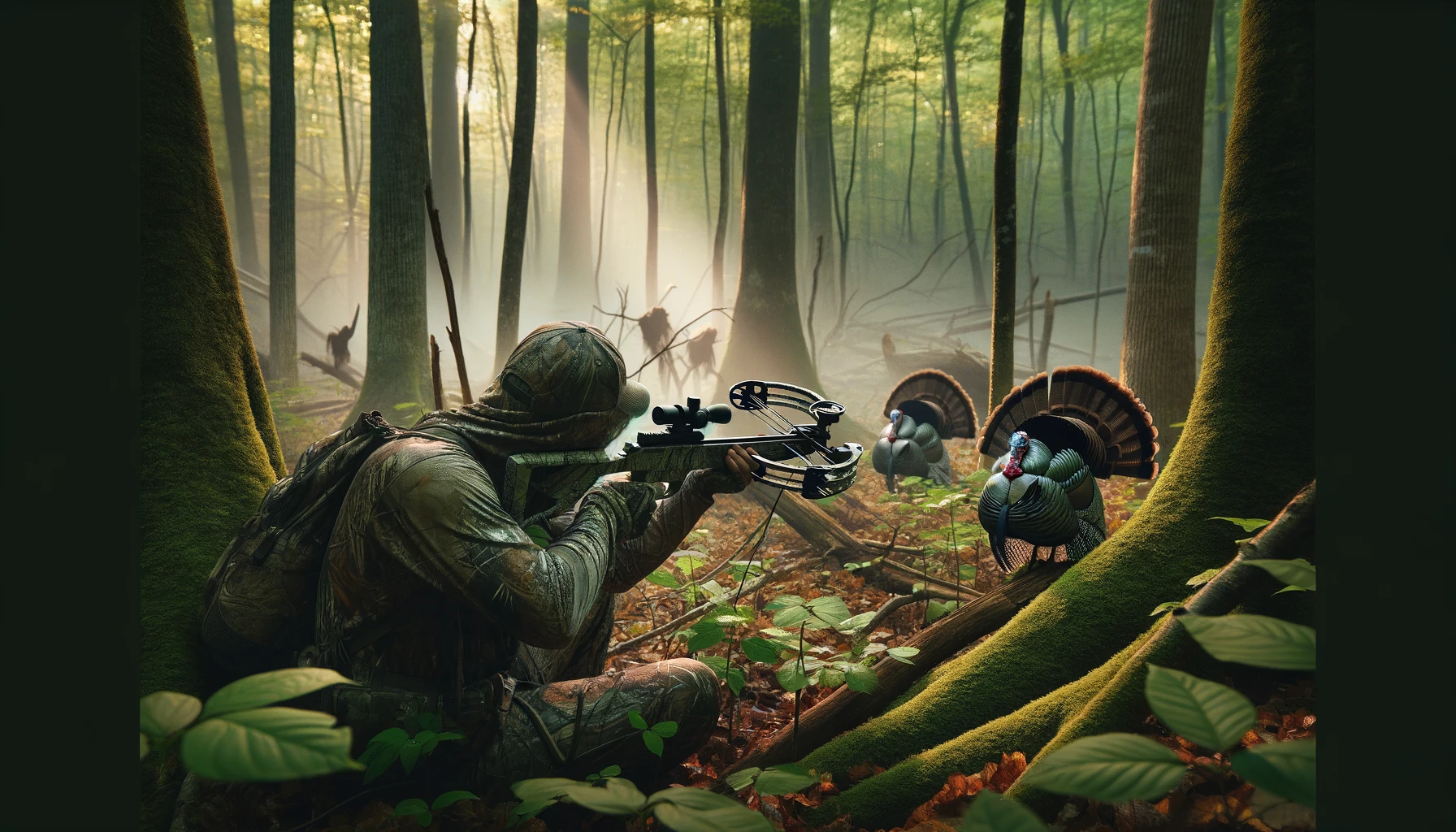
Table of Contents
Crossbow turkey hunting combines traditional hunting skills with modern technology, offering a unique challenge and rewarding experience in the pursuit of wild turkeys. This guide provides an overview of essential strategies, gear, and considerations for hunters looking to master the art of crossbow turkey hunting.
Turkeys roost in trees at night and are most active during the early morning and late afternoon. They frequent areas where food is abundant, including fields, forests, and edges. Understanding these patterns is crucial for setting up a successful hunt.
Turkeys communicate through a series of calls, including gobbles, clucks, and purrs. Familiarizing yourself with these sounds can help you locate turkeys and lure them into range.
Look for a crossbow with sufficient power to ensure a humane kill, typically with a draw weight of at least 150 pounds. Modern crossbows also offer features like scopes and noise-dampening technology to enhance accuracy and stealth.
Use broadheads designed for turkey hunting, which feature larger cutting diameters to maximize impact. Fixed or mechanical broadheads are both effective, but ensure they are sharp and well-maintained.
Turkeys have keen eyesight, making effective camouflage essential. Match your camo pattern to your hunting environment and consider using a blind to conceal your movements.
Deploying decoys can enhance your chances of attracting a turkey within crossbow range. Use a combination of hen and jake (young male) decoys to trigger a dominant tom’s territorial instincts.
Use turkey calls sparingly and with variety to mimic natural turkey behavior. Overcalling can make turkeys wary, so observe their response and adjust accordingly.
Turkeys can take time to approach, requiring patience. Position yourself with a clear view of the decoys and anticipated turkey path, ensuring you have a stable platform for your crossbow.
Aim for a clean, ethical shot, targeting the vital areas of the turkey to ensure a quick and humane harvest. Know your crossbow’s effective range and limit shots to within this distance.
Always treat your crossbow with the same respect as a firearm. Keep the safety engaged until ready to shoot and be mindful of your target and beyond.
Crossbow turkey hunting offers an exciting blend of tradition and innovation, requiring skill, patience, and respect for the game and nature. By understanding turkey behavior, mastering your equipment, and employing strategic tactics, you can enjoy the thrill of the hunt while ensuring a respectful pursuit of these magnificent birds.
Yes, most states require a hunting license and possibly additional permits for turkey hunting. Check local regulations for specific requirements.
Crossbow regulations vary by state. Some states allow crossbows during specific seasons or for hunters with certain qualifications. Always verify the legal status in your area.
While modern crossbows are capable of accurate shots at longer distances, limiting shots to within 30-40 yards can increase the likelihood of a precise, ethical kill.
Early morning hours just after dawn and late afternoon before dusk are prime times for turkey activity, offering the best opportunities for hunting.
Practice shooting your crossbow at various distances to become comfortable with its operation and accuracy. Familiarize yourself with assembling and disassembling your equipment, especially if you plan to transport it to your hunting location.
When you’re setting up a long-range rifle scope, one of the most important decisions you’ll…
For many shooters, the objective lens size is one of the first things they look…
For decades, the 3–9×40 rifle scope has been one of the most iconic optics used…
Tuning a compound bow can feel intimidating, especially if you’re new to archery or don’t…
The world of compound bows is filled with innovation, craftsmanship, and brand loyalty. Among all…
A hunting rifle is one of the most trusted tools in the field. It doesn’t…
This website uses cookies.